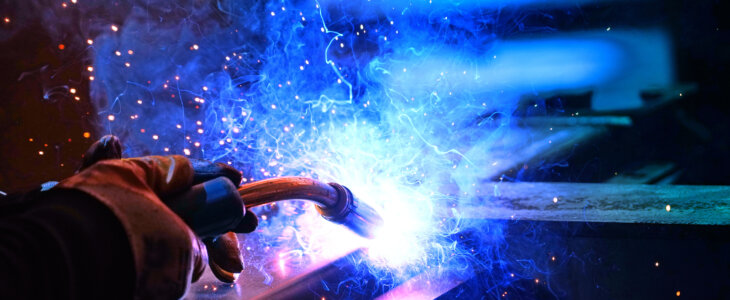Welding is critical to many industries, from construction to manufacturing, but it comes with serious risks. One of the most common and devastating injuries is severe burns. These accidents can happen quickly, leaving workers with painful, long-term consequences. While some injuries are inevitable in hazardous environments, many are preventable if manufacturers meet their obligations. Faulty equipment, missing safety features, and lack of proper safety guidelines can put workers at unnecessary risk. When equipment manufacturers fall short, holding them accountable can help injured workers find justice and financial support for recovery.
The Common Causes of Welding Burns
Welding burns can occur in a variety of ways, often when proper precautions aren’t taken. Severe burns may result from direct contact with hot metal, sparks, or arc flashes, as well as sudden bursts of intense light and heat. Below are some of the most common causes of welding burns:
- Direct exposure to sparks or molten metal: Sparks can easily land on skin or ignite clothing, causing thermal burns.
- Arc flashes: These intense bursts of ultraviolet (UV) light can burn the skin and damage the eyes in seconds.
- Contact with hot surfaces: Welders may accidentally touch hot metal or equipment, leading to serious burns.
- Inadequate protective gear: Failing to wear the proper clothing, gloves, or helmets can expose workers to these hazards.
- Faulty or poorly maintained equipment: Equipment that malfunctions can cause unexpected exposure to extreme heat or sparks.
Key Safety Responsibilities for Welding Equipment Manufacturers
Manufacturers have a duty to ensure that welding equipment is not only effective but also safe for users. This responsibility includes designing and producing equipment with features that protect workers from potential hazards. When manufacturers fail to meet these obligations, they can be held liable for accidents that result from their negligence. Key responsibilities of equipment manufacturers include:
- Incorporating Safety Features: Equipment should include essential safety elements like emergency shutoff switches, temperature controls, and automatic cooling functions to help prevent overheating.
- Ensuring Proper Ventilation: Tools must be compatible with or include ventilation requirements to reduce exposure to harmful fumes and heat.
- Testing and Quality Assurance: Rigorous testing ensures that each piece of equipment meets industry safety standards.
- Providing Clear Instructions and Warning: Detailed usage guidelines help reduce misuse, keeping workers safe on the job.
These features are critical for preventing accidents and minimizing harm to workers.
When Equipment Fails: Manufacturer Liability
When welding equipment malfunctions or lacks necessary safety features, the consequences can be devastating for workers. Equipment manufacturers have a legal obligation to produce tools that meet specific safety standards, and when they fail in this duty, they may be held liable for resulting injuries. Defects in design, manufacturing flaws, or poor-quality materials can all increase the risk of severe burns and other injuries.
Common issues that may lead to manufacturer liability include:
- Defective Parts: Malfunctioning components can lead to accidents and severe injuries.
- Inadequate Safety Testing: Equipment that isn’t rigorously tested may contain unnoticed hazards.
- Lack of Warnings: Manufacturers must clearly indicate any risks associated with their products, including potential misuse.
When manufacturers neglect these responsibilities, injured workers have the right to seek compensation for the harm caused.
Legal Steps After a Welding Burn Accident
After a severe welding burn accident, taking certain steps can help protect your rights and build a potential case. First, seek immediate medical attention and document your injuries carefully, as these records can be essential for a legal claim. Retain any evidence related to the accident, such as photographs of the scene, the equipment used, and witness statements. It’s also beneficial to keep records of medical treatments and any time lost from work. Consulting with an attorney experienced in product liability can help you understand your options and ensure you’re taking the right steps to pursue compensation for your injuries.
Contact Our Experienced Walnut Creek Industrial Accident Attorneys
At Casper, Meadows, Schwartz & Cook, we are committed to helping workers who have been injured in welding accidents get the compensation they deserve. If you’ve suffered severe burns due to faulty equipment, we’re here to guide you through the legal process. Contact us today to discuss your case.

